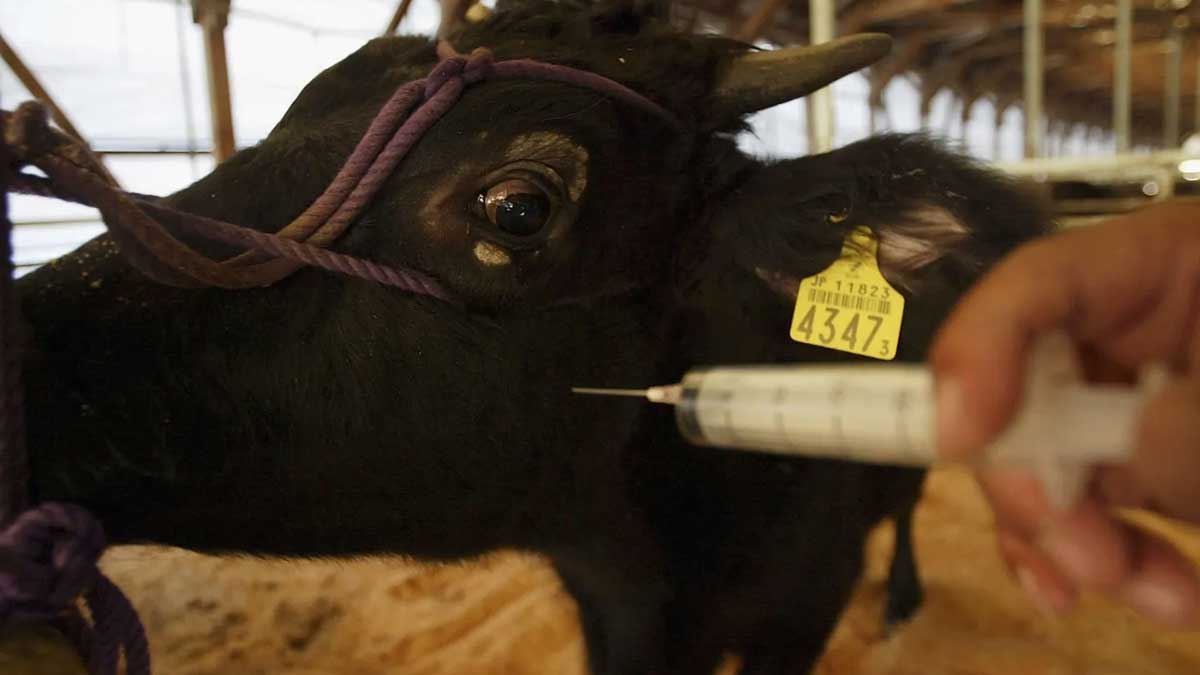- Home
- Billionaires
- Investing Newsletters
- 193CC 1000
- Article Layout 2
- Article Layout 3
- Article Layout 4
- Article Layout 5
- Article Layout 6
- Article Layout 7
- Article Layout 8
- Article Layout 9
- Article Layout 10
- Article Layout 11
- Article Layout 12
- Article Layout 13
- Article Layout 14
- Article Sidebar
- Post Format
- pages
- Archive Layouts
- Post Gallery
- Post Video Background
- Post Review
- Sponsored Post
- Leadership
- Business
- Money
- Small Business
- Innovation
- Shop
Recent Posts
Moderna Gets $176M for Bird Flu Vaccine

Moderna has announced that it has secured a $176 million federal grant to develop mRNA vaccines aimed at combating the H5N1 bird flu. This funding comes as concerns about a potential pandemic rise. The highly contagious H5N1 influenza virus has been spreading rapidly through poultry farms and cattle herds, prompting fears that it could jump to humans. The grant will support the late-stage development of a vaccine to bolster U.S. vaccine stockpiles, preparing for a possible outbreak.
The funding for this initiative comes from the U.S. government’s Biomedical Advanced Research and Development Authority (BARDA), an agency tasked with defending against health threats such as pandemics, emerging infectious diseases, and other public health emergencies. The primary goal is to develop a “pre-pandemic” mRNA vaccine for the H5 influenza virus, which could be licensed and ready for deployment in the event of a widespread outbreak. This proactive approach aims to enhance the country’s preparedness and response capabilities.
Flu viruses are categorized based on two proteins found on their surface: hemagglutinin (H) and neuraminidase (N). The H5N1 strain, which has been spreading among animals worldwide since 2020, has recently begun to infect more mammals, including livestock like dairy cattle in the United States. These developments have alarmed health experts, who fear the virus could mutate and become transmissible among humans. The spread of H5N1 among different species and its occasional transmission to humans underscore the urgent need for a viable vaccine.
Moderna has been conducting early-stage clinical trials for an mRNA pandemic flu vaccine since 2023, focusing on the H5 and H7 strains, both of which are known for their potential to mutate into highly virulent and lethal forms. Results from these trials are expected in 2024, which will guide the late-stage development of the vaccine. This effort is part of a broader strategy to create vaccines that can be rapidly deployed in response to emerging health threats.
The agreement with BARDA includes provisions to prepare for and accelerate responses to future public health threats, although specific details of these provisions were not disclosed. Moderna CEO Stéphane Bancel emphasized the advantages of mRNA vaccine technology, noting its efficacy, speed of development, and production scalability. These benefits were demonstrated during the COVID-19 pandemic when Moderna, with BARDA’s support, quickly developed and rolled out its mRNA-based COVID-19 vaccine. Bancel expressed satisfaction with continuing this collaboration to expedite the development of mRNA-based pandemic influenza vaccines and support global public health preparedness.
The COVID-19 pandemic marked a significant milestone for mRNA vaccines, highlighting their potential after decades of research. Traditional vaccine development is typically slow, often taking at least a decade due to the complexities of safely developing and testing new vaccines. In contrast, mRNA vaccines can be designed, modified, and produced much more quickly. This rapid development capability enabled Moderna, along with Pfizer and BioNTech, to bring their COVID-19 vaccines to market swiftly in the U.S. and other countries. As a versatile and rapidly deployable platform, mRNA vaccines are being explored not only for pandemic threats but also for common infectious diseases like flu and RSV, as well as potential treatments for cancer.
Moderna was among several companies that collaborated with BARDA on COVID-19 countermeasures, including the production of its successful Spikevax shot and developing boosters for variants like Omicron. This collaboration underscored the importance of public-private partnerships in addressing urgent health challenges.
BARDA is funding Moderna’s mRNA project through a newly formed Rapid Response Partnership Vehicle (RRPV) consortium, which includes experts in medical technology, vaccines, and therapeutics. The consortium aims to address evolving health needs, such as pandemic influenza, emerging infectious diseases, and other biological threats. Recently, the RRPV awarded $25.5 million to Allucent for next-generation COVID-19 booster vaccine research. Additionally, it allocated $550 million to four companies for clinical trials of new coronavirus vaccines, including needleless options and a $450 million grant to Vaxart for an oral vaccine candidate. The consortium is also seeking laboratories capable of performing testing during a viral pandemic, including influenza.
The H5N1 virus has been spreading among wild bird populations for years and has recently started infecting mammals, including marine wildlife and domestic herds like dairy cattle in the U.S. Scientists are particularly concerned about H5 bird flu due to its history of evolving into highly pathogenic forms and its devastating impact on both domestic and wild bird populations worldwide. There is significant concern about the potential for the virus to cause a human pandemic, which could be even more devastating than COVID-19.
For H5N1 to become a pandemic, it would need to infect humans and spread between them without animals as intermediaries. While there have been human H5 infections in the U.S., these cases typically involve close contact with infected animals and have not resulted in human-to-human transmission. However, increasing mammalian infections are worrisome as they suggest the virus is adapting to systems similar to humans. Infections in domestic animals, particularly dairy herds, heighten concerns because these animals are frequently in contact with humans, increasing the risk of the virus mutating and spreading. The exact risks are challenging to quantify due to numerous unknown factors, and experts have criticized the lack of robust data, testing, and containment measures to address the outbreak.
Recent Posts
Categories
- 193cc Digital Assets2
- 5G1
- Aerospace & Defense46
- AI37
- Arts3
- Banking & Insurance11
- Big Data3
- Billionaires426
- Boats & Planes1
- Business328
- Careers13
- Cars & Bikes76
- CEO Network1
- CFO Network17
- CHRO Network1
- CIO Network1
- Cloud10
- CMO Network18
- Commercial Real Estate7
- Consultant1
- Consumer Tech180
- CxO1
- Cybersecurity68
- Dining1
- Diversity, Equity & Inclusion4
- Education7
- Energy8
- Enterprise Tech29
- Events11
- Fintech1
- Food & Drink2
- Franchises1
- Freelance1
- Future Of Work2
- Games141
- GIG1
- Healthcare78
- Hollywood & Entertainment186
- Houses1
- Innovation42
- Investing2
- Investing Newsletters4
- Leadership65
- Lifestyle11
- Manufacturing1
- Markets20
- Media193
- Mobile phone1
- Money13
- Personal Finance2
- Policy567
- Real Estate1
- Research6
- Retail1
- Retirement1
- Small Business1
- SportsMoney33
- Style & Beauty1
- Success Income1
- Taxes2
- Travel10
- Uncategorized8
- Vices1
- Watches & Jewelry2
- world's billionaires395
Related Articles
Farkhad Akhmedov: A Life in Business, Wealth, and Controversy
Farkhad Akhmedov, a Russian-born businessman with a story that spans from trading...
By 193cc World's BillionairesDecember 2, 2024Rob Walton & Family: A Legacy of Business Leadership and Sports Ownership
Rob Walton, the eldest son of Walmart founder Sam Walton, has been...
By 193cc World's BillionairesNovember 28, 2024Tottenham Overcomes City with Kulusevski’s Magic
In a thrilling display of skill and determination, Dejan Kulusevski emerged as...
By 193cc Agency CouncilNovember 1, 2024Hezbollah Leader Nasrallah Killed in Israeli Airstrike
Hezbollah has confirmed that its longtime leader, Hassan Nasrallah, was killed in...
By 193cc Agency CouncilSeptember 28, 2024















Leave a comment